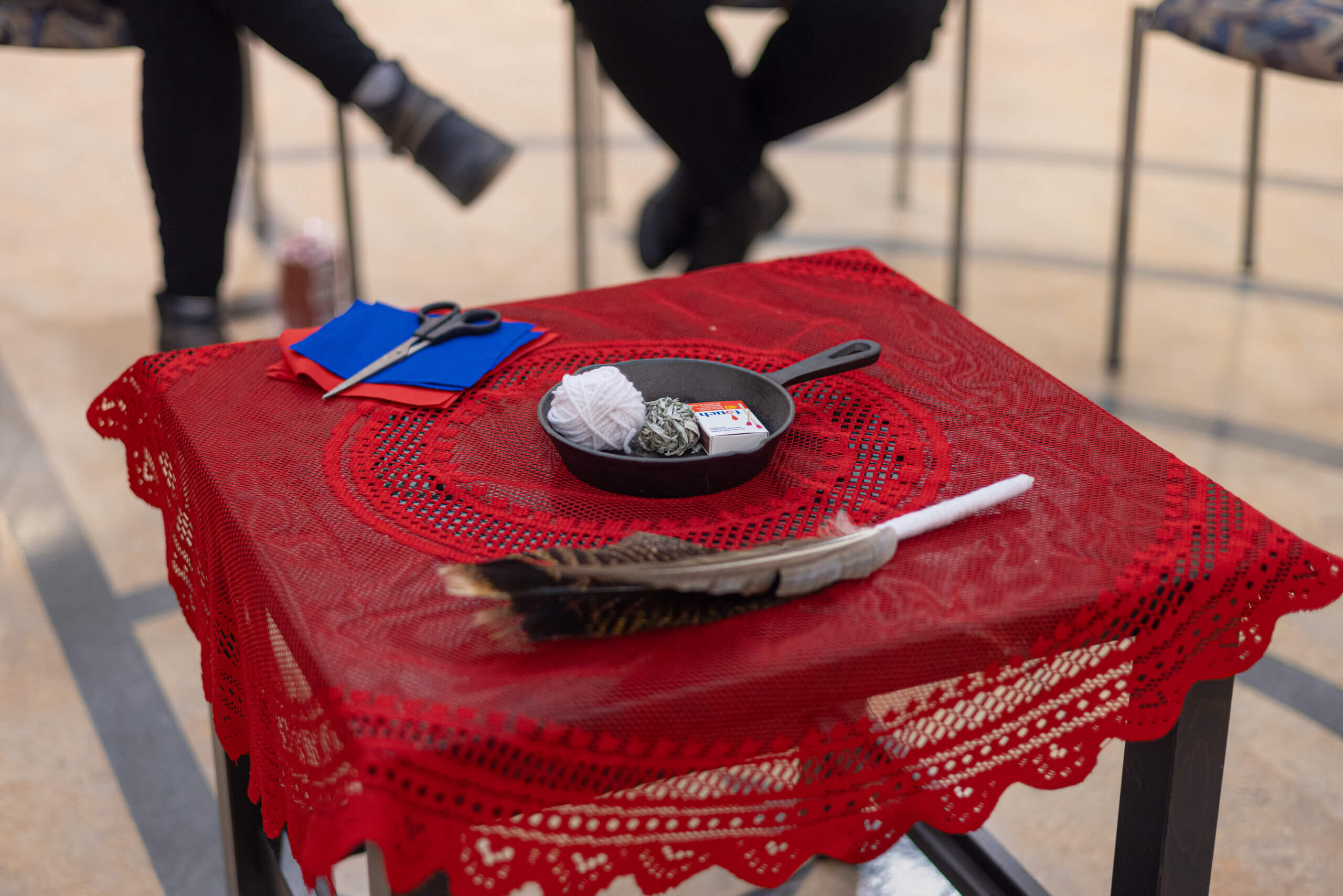Recognition & Awareness
Throughout out the year there are several Indigenous-focused recognition and awareness events touching on several themes, many of which are connected to ongoing Truth & Reconciliation work. Please see below for more information on these recognition and awareness events and stories celebrating Indigenous leaders, health care workers and community leaders making a difference for Manitobans.

National Day for Truth and Reconciliation / Orange Shirt Day

On September 30th, Canadians are called upon to wear orange to acknowledge the harmful legacy of the Canadian residential school system, and bear witness to the healing journey of survivors and their families.
With the last residential school in Canada closing in 1997, the impacts of this history continues to be relevant within the healthcare system and Canadian society. As Canadians listen and believe the truths of Indigenous peoples, we use this day as a call to action to create a better Canada.
Past articles related to National Day for Truth and Reconciliation / Orange Shirt Day
Ribbon Skirt Day

Ribbon Skirt Day is an occasion to expand our knowledge and understanding of the important of traditional garments as an expression of Indigenous culture.
The origins of Ribbon Skirt Day are found in Cote First Nation, located in Saskatchewan, home to Isabella Kulak.
In December 2020 10-year-old Isabella participated in a formal dress up day at her school. She wore a handmade ribbon skirt for the occasion, and was told that her skirt was not considered formal wear.
Isabella’s story, and the national attention that followed, prompted an outpouring of support including photos and ribbons sent to Kulak as gifts. Ultimately, that attention resulted in the passage of a Bill on Dec. 15, 2022 proclaiming Jan. 4 as National Ribbon Skirt Day.
The day serves as recognition of the discrimination experienced by Isabella and other Indigenous women and girls and is an opportunity for Canadians to recognize, learn about, and celebrate the importance of Indigenous traditions and expressions of culture.

National Indigenous Languages Day
Recognized by Indigenous peoples across Canada since 1993, National Indigenous Languages Day is celebrated annually on March 31 to acknowledge and honour the strength and resilience of Indigenous languages and cultures.
Past articles related to Indigenous languages
Jordan’s Principle / Bear Witness Day
Named in memory of Jordan River Anderson, a young boy from Norway House Cree Nation, Jordan’s Principle ensures that all First Nations children living in Canada can access the products, services and supports they need, when they need them.
Bear Witness Day is held annually on May 10 to coincide with Jordan’s birthday and invites people of all ages to “Bear Witness” to ensure Jordan’s Principle is fully implemented.
Articles related to Jordan’s Principle
National Indigenous Peoples Day
For several generations June 21 has served as a time for many Indigenous groups and communities to celebrate their culture and heritage because of the significance of the summer solstice as the longest day of the year.
Shared Health recognizes and commemorates the rich and diverse histories and experiences of First Nations, Inuit and Métis peoples. We recognize the need to advance reconciliation from a foundation of respect, with both acknowledgement of the harms and mistakes of the past and recognition of the incredible potential of our shared future.
As an organization, we recognize the distinct cultural knowledge, practices and traditions of Indigenous Peoples and are committed to continued learning. While we once again are not able to be together for in person celebrations this year, we can – and should – take time to learn, honour and celebrate, the significant contributions of Indigenous peoples to our country, our province and throughout our health system.
Articles related to National Indigenous Peoples Day
National Indigenous History Month
Each June, organizations and communities across Canada commemorate National Indigenous History Month with celebrations and ceremonies that recognize the history, heritage and diversity of Canadian Indigenous Peoples.
Shared Health is committed to continuous learning and improvement- key organizational values that are threaded into our actions, services and clinical planning. This commitment drives us towards a shared goal of more equitable, culturally safe care, where access and quality of services are not dependent on heritage, skin colour or language.
Past articles related to National Indigenous History Month
National Indigenous Veterans Day
Indigenous Veterans Day is observed in Canada on November 8, in recognition of Indigenous contributions to military service, particularly in the First World War, Second World War and the Korean War. National Aboriginal Veterans Day was first observed in Winnipeg on November 8, 1994 and has since been observed nationwide.
Indigenous peoples have served in times of war and peace for more than 200 years since the War of 1812 to Afghanistan and many continue to serve. For many years, that service was often overlooked and underappreciated.
Missing and Murdered Indigenous Women and Girls (MMIWG)
National Day of Remembrance
May 5 is the National Day of Awareness for Missing & Murdered Indigenous Women and Girls and 2SLGBTQI+ people (MMIWG2S), also known as “Red Dress Day,” coined by Métis artist Jaime Black as “an aesthetic response to this critical national issue.” The ongoing crisis of missing and murdered Indigenous women, girls, and 2SLGBTQI+ people that we are facing is a direct result of colonization.
The Canadian Institute of Health Research notes that more than six in ten (63%) Indigenous women in our country have experienced physical or sexual assault in their lifetime. The impact of these disproportionately high rates of violence is felt in all areas of life. The effects on health and wellness include inequitable access and treatment in health care and underrepresentation in health research.
